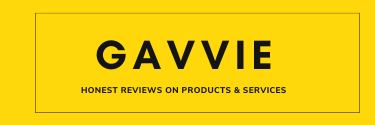Yieldstreet is a unique crowdfunded lending platform. While it offers shorter-term loans secured by commercial and multifamily real estate, it has expanded its offerings significantly in recent years to include real estate equity and investments backed by art, aviation, legal, and marine assets. That enables investors on its platform to potentially earn passive income backed by a variety of alternative asset classes, allowing them to diversify their portfolio and reduce their correlation to the volatile stock market.
Most of the loans it offers have terms of three years or less (with many less than two years). It also offers fund options, equity deals, and shorter-term investment opportunities.
Finally, while most of Yieldstreet’s offerings are only available to accredited investors, it has opened one of its offerings to non-accredited investors.
Like with any other platform, there is a risk, particularly if you’re investing in debt secured by an asset you may not be familiar with or capable of value, but there’s also potential reward, based on the higher interest rates paid by the offerings on Yieldstreet.
What are Yieldstreet’s pros and cons?
Pros
- A mix of assets: Alternative assets (e.g., legal, aviation, art, and marine) beyond just real estate could make the platform even more compelling for investors looking to diversify.
- Low minimum investment: Most investments have a $10,000 minimum, which is lower than most other platforms geared toward accredited investors. Yieldstreet has also started offering options with even lower minimums of $2,500 geared towards non-accredited investors or those seeking a place to stash their uninvested cash for the short term.
- Short-term choices: Many of the loans on its platform are less than two years in length, which is shorter than most platforms targeting real estate projects that will take three to five years — or more — to complete. If you’re looking to add shorter-term investments to your portfolio, Yieldstreet may be a great fit.
- Reasonable fees: 0% to 2% fees on most of its offerings are lower than you will find on many other platforms. Its fees are higher on some of its fund options, depending on the structure.
- Diversified fund options: Yieldstreet has started offering more diversified fund options over the past year.
Cons
- Most offerings are only open to accredited investors: If you have less than $1 million in net worth and/or earn less than $200,000 per year, you can’t invest in most Yieldstreet deals.
- A mix of assets: Yieldstreet might not be the best place for investors looking for crowdfunded real estate deals, given its diversification into other asset classes.
- Higher-risk loans: While collateral like art, real estate, and marine vessels back Yieldstreet’s loans, they’re riskier debt investments with a higher likelihood of default.
- IRA limitations: If you want to use a self-directed IRA (SDIRA), you have to create a new one that you can only invest in through Yieldstreet. This could result in paying more fees if you want to use your SDIRA for other investments as well, as you’ll need more than one. Most other platforms work with multiple third-party IRA custodians.
Is Yieldstreet legit? How strong is it?
Yieldstreet’s founders and managing executives are high-profile, known figures in alternative finance and technology entrepreneurship. The company also has the financial backing of major investors like George Soros via a substantial credit facility, and it signed a huge deal with Citi (NYSE: C), which said it will use the Yieldstreet platform to invest $2 billion for its wealth clients over the next couple of years. Further, at the time of this review, it was reportedly exploring the possibility of setting up a special purpose acquisition company (SPAC) to either go public or co-sponsor to raise additional capital.
Overall, investors have invested nearly $1.3 billion with Yieldstreet. The platform has returned nearly $750 million of capital to investors through early 2021, including almost $140 million in interest, earning investors a net IRR of 11.54%. Sounds pretty legitimate to us.
However, it hasn’t all been smooth sailing for Yieldstreet investors, as borrowers have defaulted on their loans in the past. A notable default came from loans tied to vessel deconstruction as the borrower defrauded Yieldstreet and other investors. Both the SEC and the FBI investigated the company and investors brought a class-action lawsuit. Yieldstreet sued the borrower and won a $77 million judgment, allowing it to seize assets to satisfy the loans.
How Yieldstreet works: How are investments sourced?
In short, investors on Yieldstreet are lending money, making a return on the yield paid by the borrower. Yieldstreet takes a fee to manage the loan, collect payments, and distribute money back to investors. It also plays an important role in making sure investors get their capital back, in the rare case when a borrower defaults on their loan.
To invest on Yieldstreet, investors find a deal they are interested in, including the asset type — real estate, art, or a marine vessel — the term of the loan, and that it falls within their return (net yield) parameters, and then invest in that particular debt instrument. Your investment is a loan to the owner of the asset, and the debt is secured by that asset.
Who can invest with Yieldstreet?
Like with the majority of other crowdfunded real estate investing platforms, most of Yieldstreet’s offerings are only available to accredited investors. That means as an investor, you must meet one of the following qualifications:
- The net worth of at least $1 million, excluding the value of your primary home.
- At least $200,000 annual income (or $300,000 as a couple filing jointly), with a reasonable expectation that will continue.
In addition to the accredited investor requirement, you will need to have the capacity to make the minimum investment in each offering as described below.
Yieldstreet was able to open its Yieldstreet Prism Fund to non-accredited investors in late 2020. The fund enables retail investors to access multiple alternative asset classes in a single fund with a low minimum investment.
What is the minimum Yieldstreet investment?
Yieldstreet minimum investments can be as low as $10,000, specifically if a deal is structured as Borrower Payment Dependent Notes, which are debt obligations to Yieldstreet but legally structured to be independent and bankruptcy-remote (meaning investors are protected from losses related to a YieldStreet bankruptcy). For Special Purpose Vehicles, which are structured as separate LLC subsidiaries of YieldStreet owned by its investors, and thus also bankruptcy-remote entities, the minimums may be higher. In addition to a difference in the investment minimums, each structure also has different fees, as described below. It may also have unique tax consequences; it’s a good idea to consult your tax professional to determine how that might impact you.
In addition to those two loan types, Yieldstreet has started offering diversified fund options and short-term note options with lower minimum investments. Both the Prism Fund and Short Term Notes have $1,000 minimum investments.
What are Yieldstreet’s fees?
Yieldstreet earns between 0% and 2% in management fees on an annualized basis for each loan listed on its platform (its Short-Term Notes series doesn’t have any fees). The fee on each investment is clearly listed on the deal page and in the relevant documentation. It’s also taken out of the cash flows paid by the borrower and is not paid by investors. In other words, if the borrower isn’t paying, Yieldstreet feels the pinch, too. That helps keep its interests aligned with those of its investors. The platform also may charge a deal originator a listing fee to use its platform.
Yieldstreet also charges a flat annual fee per investor. The fee depends on the legal structure of the loan: It’s $100 for Special Purpose Vehicles and $150 for Borrower Payment Dependent Notes in the first year, and then $70 and $30 respectively in the 00following years. Like the management fee, it’s not billed directly to investors but is deducted from your initial distributions.
Yieldstreet’s fund options have different fee structures. For example, the Yieldstreet Prism Fund has a 1% annual management fee and a maximum annual administrative expense of 0.5%. Meanwhile, the Aviation Fund has a management fee between 0%-0.25% and an incentive fee between 0%-2.5%.
Yieldstreet returns: What should you expect?
Lending in art and marine assets, along with real estate categories like hospitality, can be risky, just like with any other asset. There are a combination of risks, including appropriate asset valuation; unexpected things that could cause the borrower to default on the loan (including poor execution, unexpected macroeconomic events, or fraud); or a change in market conditions that make it hard to fully recoup your capital if the asset securing the debt can’t be sold for at least the value of your loan, plus any other debt that’s senior to your position.
The good news is, Yieldstreet has been very successful. Investors have invested nearly $1.3 billion in the platform since its formation. As of this review, Yieldstreet has returned almost $750 million to investors, including close to $140 million in interest. Overall, it has generated a net IRR of 11.54%.
In other words, if Yieldstreet continues to provide solid due diligence and the economy remains relatively healthy, investors should be able to count on generally making profitable loans and, in the case of default, relying on Yieldstreet to get a return on their capital. However, every deal you consider investing in has unique risk characteristics that should be considered before you risk any money, because, at some point, Yieldstreet’s streak of limiting losses could come to an end. Consider that, and take advantage of the lower-than-average minimum investment to build a diversified collection of loans to help reduce your individual risk of permanent losses.
With that said, one of the things that many investors may find most compelling about Yieldstreet is the number of short-term deals it lists, and at high-interest yields. If you’re looking for deals that last a couple of years or less and offer high yields, Yieldstreet may be right up your alley.
When (and how) can you sell Yieldstreet investments?
Like most other crowdfunded investments where you invest in a stand-alone deal, you must stay in the investment for the duration. These are not liquid investments and should not be treated as such. With that said, Yieldstreet has regularly featured debt offerings with terms of less than one year (and its Short-Term Notes series has a 180-day term) to as long as four years or longer. That should make it easier to find an investment that works with your liquidity needs.
The Yieldstreet Prism Fund, however, will be different from Yieldstreet’s other investments. It expects this fund to last 48 months before the liquidation of the assets and return of capital over another year or so. However, beginning in June of 2021, Yieldstreet intends to offer limited liquidity each quarter, subject to approval from the Fund’s Board of Directors.
Going mobile: Is there a Yieldstreet app?
Yieldstreet is one of a small number of online crowdfunded investing platforms that has an app for smartphones and tablets. And while the app isn’t required for mobile users — its website is mobile-optimized and works just as well as the desktop site — it’s nice if you prefer a standalone app.
IOS reviewers have given it a 4.5-star rating in the App Store, while Android reviewers have given it only 3.5 stars. A review of comments made by people giving it two stars or less found that many were dissatisfied that Yieldstreet was only open to accredited investors (at the time).
Yieldstreet risks: Is Yieldstreet safe to invest with?
The biggest risk investors will face with investments on Yieldstreet is a borrower’s inability to repay the loan. Your investment is bankruptcy-remote from both Yieldstreet and from the originator who brings the loan to Yieldstreet to list on the platform, structured as separate legal entities with you, and other investors, as the owner of the debt in each investment.
To be specific, the loans on Yieldstreet are short-term in nature, pay a high yield, and are secured by the asset described, either real estate, art, or a marine vessel. If the borrower defaults, and cannot satisfy the loan or reach a satisfactory agreement, then the asset gets foreclosed, and there are no guarantees that it will be liquidated at a high enough price to satisfy all creditors. That could mean you lose money, particularly if the loan you invest in is junior to other debt on the asset.
Yieldstreet’s primarily asset-backed loans are lower risk than some investment options, but they’re not risk-free investments. The reason it offers yield higher rates than other alternative passive income options is that the yield compensates investors for the risk they’re taking by lending their capital to the borrower.
While losses have rarely happened, as most loans have either been repaid on time or Yieldstreet was able to work out recovery, borrowers have defaulted on their loans in the past. As mentioned previously, a borrower tried to defraud Yieldstreet and other investors on some loans tied to vessel deconstruction. Yieldstreet prevailed in this case, but it might not always be able to get a recovery, especially if the value of the assets collateralizing the loan loses value in an economic downturn.
However, as long as the economy keeps plugging along, the default risks should continue to be more than offset by the potential yields on this kind of short-term debt, particularly if you spread your capital across multiple loans and asset types. The risk is that defaults could move much higher if the macroeconomic winds were to shift. Keep that in mind, and invest according to your personal risk tolerance.
Overall, Yieldstreet offers investors a unique opportunity to generate passive income backed by a variety of alternative asset classes. While not all loans have performed, it has a solid track record overall as the higher yields of its loans have proven to be more than adequate compensation for their higher risk profiles.
Unfair Advantages: How Real Estate Became a Billionaire Factory
You probably know that real estate has long been the playground for the rich and well-connected and that according to recently published data it’s also been the best-performing investment in modern history. And with a set of unfair advantages that are completely unheard of with other investments, it’s no surprise why. But those barriers have come crashing down – and now it’s possible to build REAL wealth through real estate at a fraction of what it used to cost, meaning the unfair advantages are now available to individuals like you.




